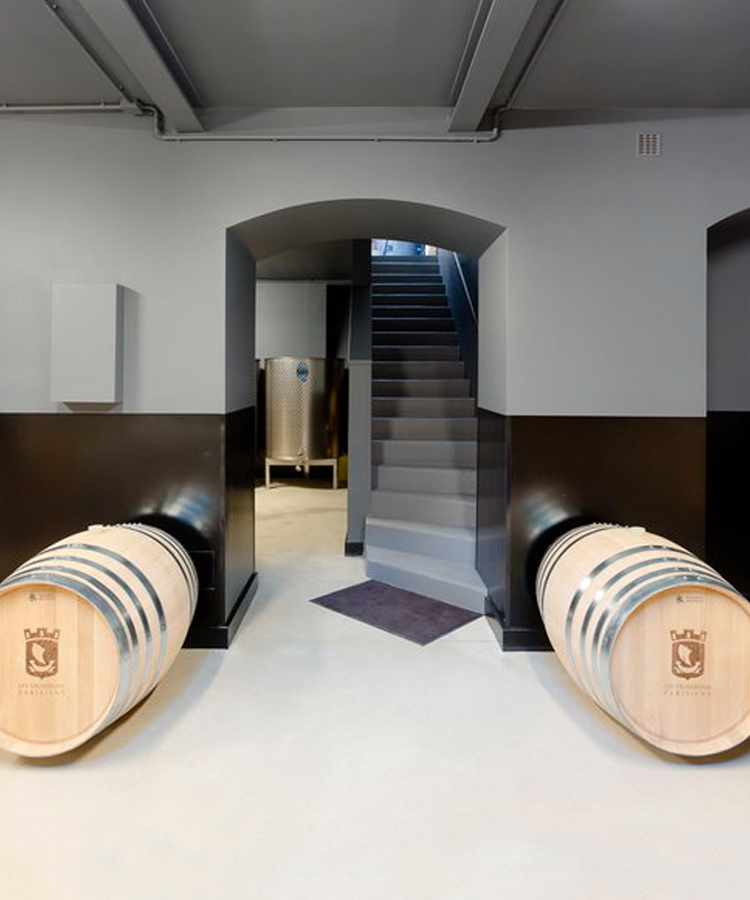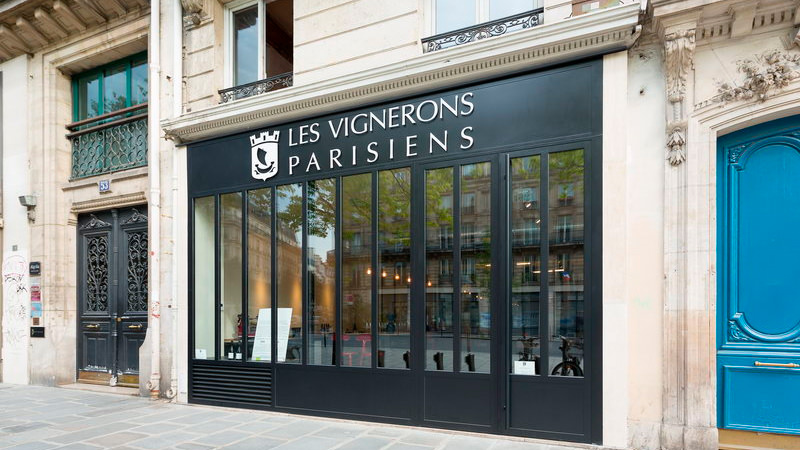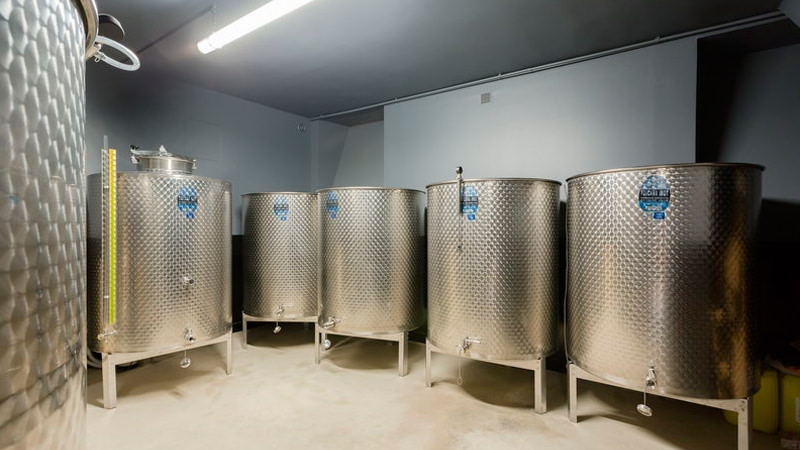
It looks like any other winery: grape press, steel tanks, label machine, the works. Everything is right where it should be, albeit slightly cramped in such a small space.
The winery representative, a bespectacled man named Matthieu Bosser, sits at a desk scattered with papers, wine labels, and pens. Through the glass window at his right, I spy crates of wine with prices scribbled in white ink. There’s also a perfectly set up tasting station with a table, five barstools, and a crachoir. All in all, a stylish but otherwise run-of-the-mill winery.
The only thing is, there are no vines.
Those are nearly six hours away by car, or two and a half by high-speed train if you’re lucky. So what’s all this equipment doing so far away from the source product? Where exactly are these grapes? And where the hell am I?
You guessed it. I’m standing in the only urban winery in Paris. Les Vignerons Parisiens specializes in Syrah, Cinsault, Grenache, and Grenache Blanc from a modern storefront on rue de Turbigo.
Unlike other urban wineries that simply buy juice and bottle it under their names, Les Vignerons Parisiens takes pride in making its wine on site. Grapes are sourced from the Rhone Valley, where two of Les Vignerons Parisiens’ founders live and oversee the vines. Forty percent of the grapes are farmed biodynamically, and all are certified organic. Everything is harvested by hand.
“When I was 18 years old, I would have loved to have been able to jump on the metro, arrive at a winery, and learn about wine,” Matthieu says.
A Paris native, Matthieu hails from a wine-loving community. His father worked with Georges Duboeuf in Beaujolais, and Matthieu previously ran a wine import business in Switzerland. His friends in the industry began purchasing vines or small wineries, most of them in or around their hometowns. Matthieu took an interest in doing so as well.
The only problem was, his home was Paris. He launched Les Vignerons Parisiens, the city’s first urban winery, in partnership with an oenologue and winemaker last year. Prior to the creation of the company, there was no official stamp to certify an urban winery within Paris. Matthieu hopes others will follow in his footsteps, regarding that as community, not competition.
While winemaking is certainly Les Vignerons Parisiens’ first priority, education is also a major initiative. The winery offers courses and tours of the facility, providing the city’s residents with a hands-on approach to learning about the nation’s favorite beverage.
“It’s not hard to find wine classes in Paris,” Matthieu continues. “In fact, they’re all over the place, but usually in big rooms or salons. Here, you get to see it with your own eyes.”
This resonates with me. Many of us can read books and listen to a lecture over and over again without retaining anything. Personally, it’s only after I put my hands on something and make a physical connection that the knowledge starts to stick.
At the end of the day, though, it’s all about what’s inside the bottle. Production at Les Vignerons Parisiens is quite small and only five cuvées are made: one white blend and four monocépage (varietal) wines crafted from Grenache Blanc, Cinsault, Grenache, and Syrah. Each cuvée is named for something distinctly Parisian, such as streets, architectural style, and history.
We sit down for a tasting, and, to be honest, my mind was blown. The white blend (equal parts Viognier, Roussanne, and Marsanne) has an acidity like lightning. The wine is called Lutece, which Matthieu informs me was the original name of Paris.
“Paris is the city where most wine is consumed in the entire world,” Matthieu tells me. “When people first arrive here, the first thing they want to do is drink a glass of good wine.” If they kick things off with a glass of Lutece, they’re off to an excellent start.


